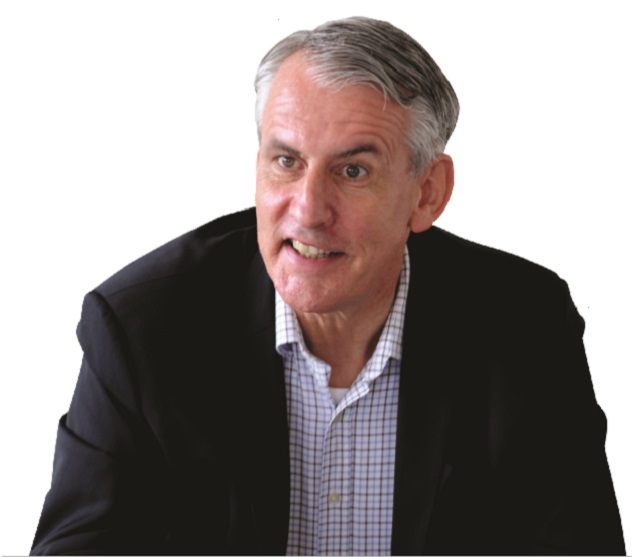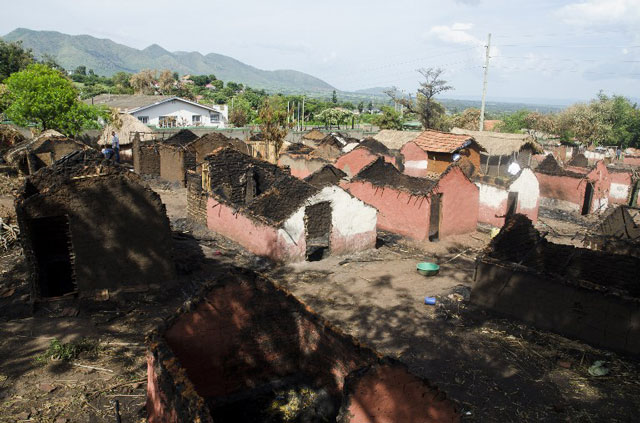
Dr. Peter Blomeyer, the outgoing German Ambassador to Uganda, talked to The Independent’s Ronald Musoke about the highlights and low moments of his two-and-half year stay in Uganda.
What have been some of your impressions of Uganda?
Uganda is a very beautiful country (and) I always go into raptures when describing to my friends in Germany the variety of Ugandan nature. Uganda features almost all African landscapes but what I find even more intriguing is the friendliness and the warm welcome the people of Uganda granted me. But I also found that Uganda is confronted with a number of pressing problems which it has to deal with proactively. The biggest challenge Uganda is facing is the growth of her population. If each year, the Ugandan population grows by one million, this means that every week, you have to build schools for 20,000 children, educate teachers for 20,000 children, build additional hospitals for 20,000 people, create jobs for 20,000 people. Are you doing that? Conflicts on land are also going to increase because the surface of Uganda will not grow. My other observation is that while at the surface peace seems to have been established over the last 30 years, underneath there are a number of unresolved issues which you could call “frozen conflicts.” The Lord’s Resistance Movement (LRA) war and excesses from the Ugandan army in Acholiland and West Nile still have lasting impacts on a population of which up to 60% suffer mental health problems. The disarmament by force in Karamoja has not reconciled the population with the state, just as their “nephews’” war in Teso is not forgotten; tribal conflicts in the West continue to end in tragedies like in Kasese last year; and even the dispute between Buganda and Uganda about the future of federalism in Uganda has been put to sleep but not been settled. The political system in Uganda has also not been advanced to a point where peaceful transfer of power can be taken for granted. This requires leadership by conviction and not by force; a balance between government and opposition; a strong and responsible civil society whose opinion is respected by the government; the readiness of political leaders to see each other as competitors in politics but also as partners in building democracy. Last year’s elections have shown that this spirit is still missing. But only this and nothing else can guarantee long term stability for the country.
How would you rate the current relations between Germany and Uganda?
For a long time, Ugandan-German relations have been, and they remain stable, warm and cordial, distinguished by mutual respect and high esteem. As for Germany, we appreciate the constructive role Uganda plays in the region, with her engagement in Somalia taking the brunt of the conflict on her soldiers; with her positive influence for peace in South Sudan; with the Ugandan President’s mediator role in Burundi and with his efforts to keep the EAC together. Now, expectations run high that he will be able to safeguard the Arusha agreement or make EPA possible.
What are some of the programmes you have overseen during your time here in Uganda?
We have three priorities here in Uganda; energy, water and rural development. Personally, I find all of them well chosen because they address key needs in Uganda. For rural development, I do hope that it will include programmes concentrating on the reconciliation of people and nature. We should support people living close to natural reserves in coexisting and, even more, in preserving and benefitting from the beautiful National Parks and other reserves of Uganda which even constitute a World Heritage. We have supported the Auditor General’s Office, the Equal Opportunities Commission; we have funded conflict mediation programmes, regional programmes to solve border disputes and supported regional organizations such as the EAC, IGAD, and the Nile Basin Initiative. We have also had numerous private initiatives. In the embassy, we have counted not less than 150 individual German initiatives for cooperation with Uganda. To me, this is what really makes our relations strong and stable.
Give us some of the highlights of your stay in Uganda
First and foremost, watching how happy our little daughter was in Uganda, as was the entire family, thanks to the warm and welcoming nature of the Ugandan people. Discussions with Ugandans in general were highlights for me—right from the President to my drivers. I might also mention a panel discussion on the occasion of 50 years of cooperation between Uganda and Germany (in 2014) where all Ugandan participants provoked by the day’s theme showed the will of the Ugandan people to advance their country’s development. I am also grateful for the chance I got to work with Ugandan artists and curators who staged so many expositions at our residence, mostly when we had concerts with German musicians coming to Uganda. And, last but not least, the close encounters with the gorillas, the chimpanzees, shoebills, the Big Five and many other beautiful creatures in the most beautiful of settings in Uganda.

How about your frustrations and disappointments?
I must say the saddest moment for me in Uganda was when I heard what happened in Kasese. Whatever the reasons for this conflict, these deaths should have been avoided by all costs. Violence should not be a solution. This brings me back to what I said before: there are a number of unresolved conflicts in Uganda, frozen conflicts which need our attention. The government and civil society have worked out a very convincing transitional justice policy which was finalised in 2014 but unfortunately up to now it has not been adopted. I can only appeal to all stakeholders to revamp this initiative and double efforts to implement it.
You leave at a time when we are witnessing some of the worst cases of torture and brutality meted out by security institutions like the Uganda Police Force. What have been some of your observations?
I think everybody, including myself, has been shocked and appalled by what has been reported in the press. The fundamental task of the police is to protect the citizens and not turn against them. The Police are a servant to the people and not masters. It is of paramount importance for the state that this spirit gets entrenched within the police force because otherwise, if the police turn criminal, it will undermine the state itself. In some of these cases, some of these police officers live under the impression that they are above the law. This needs to be corrected. Those responsible for these crimes should be prosecuted in courts of law. There must be a spirit within the police core that they serve the people and that they are defenders of the law.
What is your assessment of corruption which also remains a big challenge in Uganda?
When I first came here in 2004, Uganda was ranked 142 out of 176 countries by Transparency International’s Corruption Perception Index. The country’s position slightly improved in 2015 to 139 but now it has dropped to 151 in 2016. Since 2010, there have been numerous scandals involving embezzlement of public funds by the government officials and there has been limited action from the government to investigate, prosecute and recover public funds. The consequences of corrupt and weak governance touch all human rights—especially for the poor. They are the ones most in need of public services and they are the most affected, when these services only come at a price. Uganda has a number of accountability institutions but then Parliamentarians need to strengthen them, as the judiciary needs support to cope with the backlog of cases. Last but not least, the citizen needs to withstand bad habits. Bribing policemen to overlook traffic offences, teachers for better grades, officials to grant contracts is widespread in Uganda and a zero tolerance culture needs to be entrenched within society.
 The Independent Uganda: You get the Truth we Pay the Price
The Independent Uganda: You get the Truth we Pay the Price




it is so sad that whatever wrong the king and his Royal guards had done, the damage and the loss of lives caught up in that senseless fight was never the solution. women and children killed in that fight can never be explained to Ugandans. Both the forces police and the Army provoke people to unnecessary. The police have abandoned the role of protection to abuse. In news you could see people using stones and sticks, which seemed more of a strike than a war. The problem in Uganda today is tribalism where others think they have a right to whatever they want.This has brewed corruption beyond control. The same people are everywhere, in public service,social services,which makes services to ordinary Ugandans unreachable yet they and their people access everything. Politics is another major problem in Uganda, people venture in politics with selfish interests; if someone lost in elections that means confusion for the constituency. More especially those who have made it a home not giving a chance to fresh ideas. Democrancy has failled us, we just need a person of Iddi Amin to revamp the country. His ministers wouldn’t be implicated in open corruption and get away with it just like is the order of the day.
the motto of uganda haz been changed from”FOR GOD AND MY COUNTRY TO FOD AND MY FAMILY,
this is so bad even our leaders has forgotten us,they re thinking of them selves only, thus why the LATE LUCKY DUBE left us with his message that NO TRUTH IN THIS WORLD.for sure there is no truth in this world,
A fairly honest assessment of Uganda’s key challenges and an accurate account of Ugandan beauty and warmth. Unfortunately, all these diplomats come and go without providing Uganda any serious solutions to the challenges that continue to haunt the country.
I do appreciate all the observations,however according to the report or document we still lack the element of accepting to Learn,Re-learn,Un Learn. We don’t refer to the past to work out for the best future of our country , this brings us back to the concern that Uganda has never had a government that takes its people as a priority.
he seems to be sympathisig with Ugandans and depomatically avoiding to be rough
Despite of the spirit of the Ugandan people he mentioned positively and with reason, there are widespread habits which I would explain as “not taking and accepting to take responsibility”. It leads to corruption, overpopulation, environmental pollution and weak economical and political performance. An exception here is the attitude towards refugees especially as the resources in Uganda already suffer from overpopulation.
Until Uganda is able to rid itself of this dog-headed regime, there won’t be peace in this beautiful land.